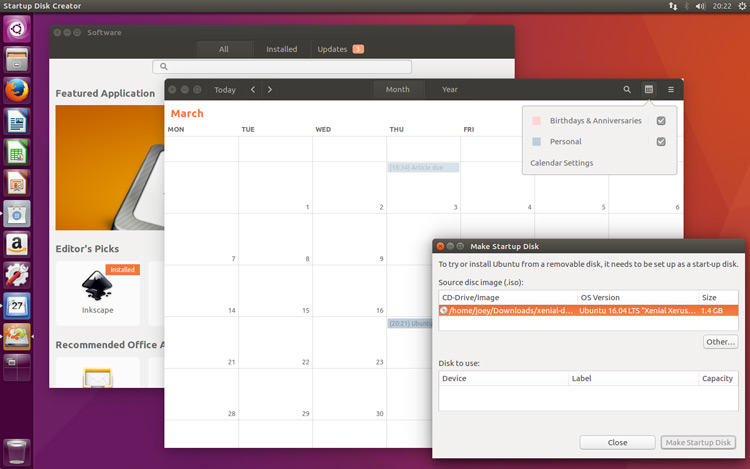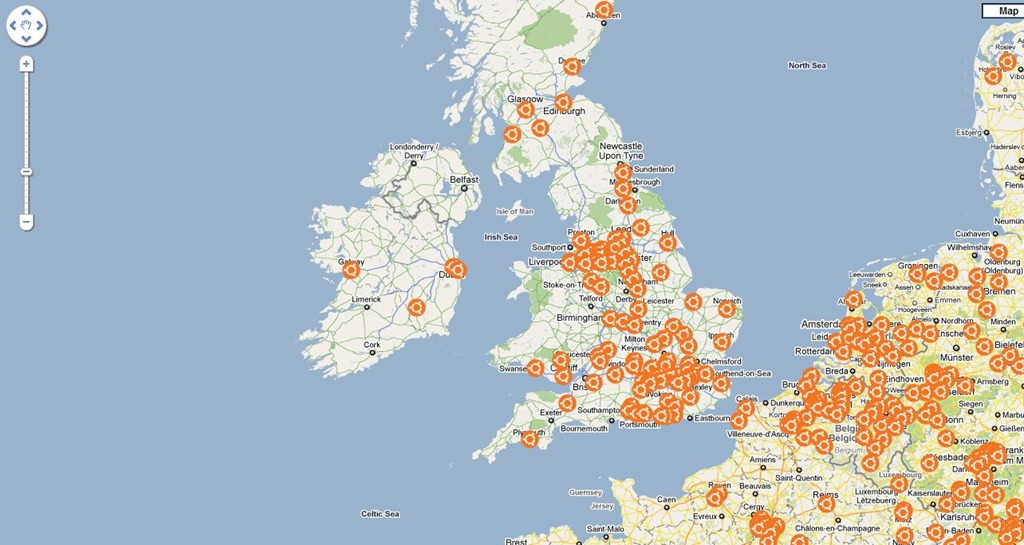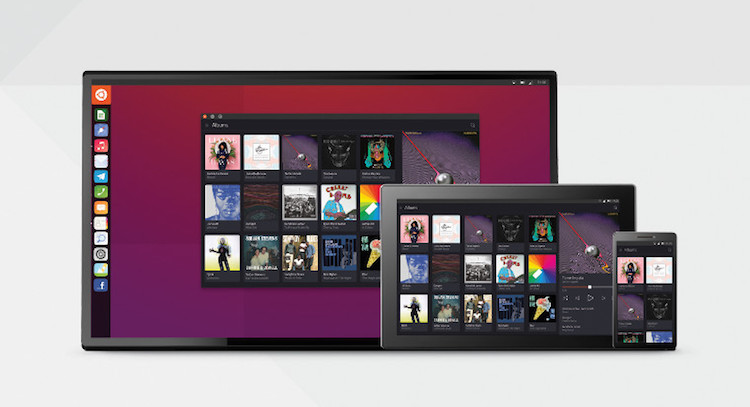The man, the myth, and the space-faring market-disrupting legend, but also a very busy man.
Yet, in the weeks following each new release of Ubuntu, Mark Shuttleworth manages to find some time to talk to the community and answer any pressing questions it has for him.
Everyone, from the novice to the developer to grammatically deficient blogger, gets the same opportunity to ask Ubuntu’s’Self-Appointed Benevolent Dictator for Life’ anything they like.
A video of his latest hour-long Q&A can be viewed by clicking play on the video above. If you are short on time you can scroll on down to read a transcript of highlights from the session.
But be aware: this article is very long. You may prefer to add this article to Pocket (other read it later services are available) and read it later, e.g., on the commute, in bed, during an awkward date, etc.
Waffle served, time to get on with the juicy stuff.
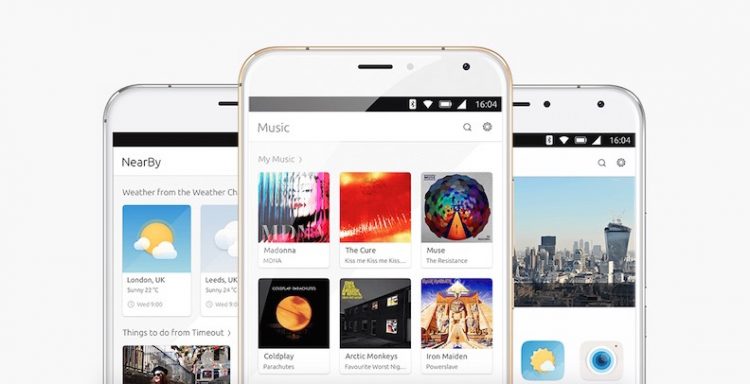
Will we see Ubuntu Phones in conventional retail space in the next 12 months?
Timestamp: 10:18
‘There are carriers who want to put us in retail stores – but we don’t think the product is ready for that’
I don’t want to comment on timelines. We do see it getting there. We’re also pretty focused on slowly expanding the set of hands to which Ubuntu is easily available because we know we’re on a curve and as we move up that curve in terms of the completeness and finish and the polish of the experience […] it becomes relevant for a wider audience.
There’s always a temptation to go straight for the moon shot. But the problem is: if you miss a moonshot it’s pretty fatal.
We know there are carriers who want to put us in retail stores in some pretty big markets. We’ve actively held back from that because we don’t think the product is ready for that level of audience.
‘More of us will use Linux on a laptop than on a phone’
Right now my focus is on generalizing the phone and tablet experience into a PC experience, so that I — and you and many of us — can run Unity 8 on the desktop. We’re not quite there yet. I’m waiting for the signal from the desktop team to say that it’s good enough for the advance guard to arrive.
And the reason that’s the focus is that there are so many more of us who are going to use Linux — open Linux — on a laptop than who are going to use it on a phone.
The next step from there is to get to an all-snap version of the laptop. And that has some real benefits.
At that point we really have a much better handle on security […] then we can make that final push to full retail exposure because we’ll have a really great convergence story, a really great security story, a really great update story.
[It’s a measured process and important to do it carefully]. You don’t have to look to far to see people who’ve aimed too high and fell flat.
Where do you see Ubuntu in 5 years, and what major technological innovations are you hoping to see in the next 10 years?

Timestamp: 12:50
At the moment I think we see three pretty distinct fields of computing:
- Personal computing – converging with mobile
- Cloud computing – evolution of the data centre
- Distributed cloud – more like a million pieces of glass; spread out over the world (IoT/Drones/Switches/Robots)
Right now about 2/3 of cloud computing runs Ubuntu and I think that’s a healthy situation; there’s a lead platform that everybody knows, and [others people may need to use].
I think we can achieve the same 2/3 leadership in IoT — and that’s an incredible thing. That’s the new big wave of computing: […making things into Snappy devices that people can build software for, manage easily, etc]. That is a huge focus for us right now.
‘I don’t think Ubuntu on the phone is going to be a lead product…
The phone market is already defined’
I’m pretty sure that in 5 years time we’ll be two-thirds of that market — which is great. It’s great for Ubuntu developers because they’ll be able to write new apps for that whole new class of things just as easily as they write apps for cloud today.
And then personal computing — that’s a wild card.
I don’t think Ubuntu on the phone is going to, y’know, be a lead product just because that phone market is already defined.
But I do think the personal computing will be disrupted again. If we’re lucky, and we’re in the right place at the right time with the right community, and we have that convergence story behind us, then I think we could be the lead for the next wave of personal computing.
Exactly what that might be I don’t want to speculate right now because my focus is on the IoT side of things. But it’s why I think it’s important for us to get the convergence side of things just right.

Will we see the Ubuntu Software Center rebuilt to allow Snappy/Paid Apps, Google Chrome, etc.
‘I think Ubuntu could be the lead for the next wave of personal computing’
We want to have a single front-end to all the different ways you can get apps effectively, from the Ubuntu community, from Canonical, from third-parties, etc.
The Software Center is supposed to be that central GUI to do it. The shift to using GNOME Software, to being aligned with GNOME Software, is helpful.
It’s obviously not a perfect piece of software, but it’s a useful shift to keep us focused on the key things we need to get right.
How will you like the HUD to be Integrated into Unity 8?
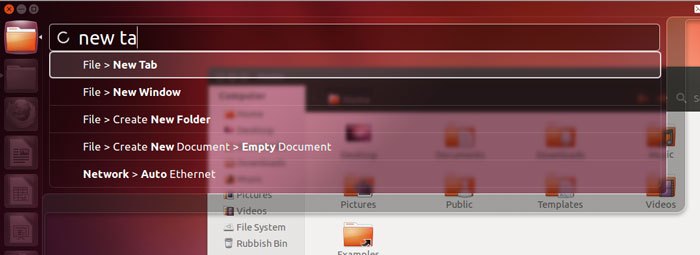
‘The HUD remains a really interesting piece of conceptual work…’
That’s a super interesting question.
I think the HUD remains a really interesting piece of conceptual work: how do you get access to rich functionality without having to pointy-clicky your way through a complex set of menus?
As I look around the world of personal computing you see a lot people thinking about natural language interfaces, and the HUD I think fits into the realm of things. It’s trying to find a more human and direct and imperative way to getting access to stuff.
Right now it’s not a top priority for me. I think there is other stuff we need to clean up in the Unity 8 and convergence story.
How Do You Plan to Top This Year’s MWC?
‘Almost all major telcos are building their clouds on Ubuntu’
We did have an incredible MWC. We saw that on all fronts: our stand had phones and tablets down one side of it, it had cloud and cloud infrastructure down the other side, and then IoT.
If you think of… Just put yourself in the shoes of your national telco [or] your local telco: while the very visible part of that telco is the phone — and everyone asks ‘how’s Ubuntu on the phone going’, etc — I want you to think about the rest of that infrastructure for a while.
Most telcos are moving their data centres…their exchanges, their core data centres to be clouds. And almost all of them are building those clouds on Ubuntu. That’s the heart of the telco.
Then think about all of the edge pieces of infrastructure: the cell phone towers, the top of rack switches; the routers; the mast towers… There are more of those than there are phones, and many of those will move to Snappy/to Ubuntu.
‘Ubuntu is […] what everybody is using to innovate’
And then there’s that last piece of that infrastructure: the human piece. I think we can do something really interesting there.
But I just want you to appreciate for a minute how much of that telco picture now that Ubuntu is really relevant for, and how exciting that is for us, for the developer community, for people who work in that industry.
What can we do next year to top it?
I definitely think we’ll see huge growth in the IoT side of things. It’s the hot thing: Ubuntu is there, and it’s what everybody is using to innovate. We’ll see more and more real production stories of people with millions of robots or cars or drones [etc] and that will go from proof-of-concept to production.
Who knows what happens on personal computing. We do have folks who want to put us in a retail store, we just want to be thoughtful about when the product is ready for that widespread visibility.
The content of your recent talks & interviews seem to be largely focused on cloud & server computing. Are you still as passionate about Ubuntu in the PC space as when you started the project?
Yes. For two reasons:
The first, y’know, we can joke about the 1% – when most people talk about the 1% they mean something different, but when I talk about the 1% i’m talking about the people who are passionate about free software on their [devices]. It’s an important audience [whether you come to it because of ideology, need, cost] — you’re a VIP as far as I’m concerned.
‘No-one else is going to build [the next wave of computing] as free software unless we do it’
I’ve been incredibly lucky in life […] because of the activities of a huge community of people who work in free software everyday. And so, kind of, making sure we have a great PC story for them is, I think, an important thing for me to do.
There are other people at Canonical and in the Ubuntu community who share that mission. We work together to get it done. That hasn’t changed at all.
There is that outside chance that we could be part of the next wave of personal computing and move right to the mainstream. But that’s only part of my motivation. I really do believe the future of personal computing is fully converged, and no-one else is going to build that as free software [unless we do it].
I’m delighted that Ubuntu creates a forum for all the different desktops to do their thing in a way that end users can consume.
If you want Ubuntu to have a future there has to be a sustainable story around that. And right now it’s pretty exciting in that regard to see the level of adoption of Ubuntu inside businesses big and small. And in particular that’s being driven by the move to cloud computing: both on public cloud, and with OpenStack and other private cloud infrastructures.
So that’s why I’m excited about it. I think it’s important to us. I think we are defining the state of the art. If you look at JuJu, if you look at LXD, I think these are critical primitives for large-scale computing.
And they wouldn’t happen if it wasn’t for Canonical, the Ubuntu community, and me being willing to get in front of that.
‘Most of my thinking right now is going into Snappy’
In fact most of my thinking right now is going into Snappy. I think the cloud story really evolved 5-6 years ago, when we started to think about computing at scale and how the OS needed to change and the [inaudible] needed to support that.
Snappy today is in that early, early stage. For me personally it’s the blank canvas, right? The really interesting stuff where nobody has ever done anything like this before, and we have to figure out from first principles what’s going to work, what’s going to be…
I think the key problems in that distributed computing story are security, right? Security from lots of angles.
You have got to be able to update your home router, for a glibc flaw or an openssl flaw, and that’s got to happen automatically without you thinking about, without you having to go find the firmware, download it, flash it, and cross your fingers. It’s got to just work and be reliable.
Also, for that really to reach its potential we have to add apps, and those apps are going to have be untrusted… how do we put those [apps in a box and make them secure]. And then the cost of managing those devices has to really go down.
And so all of those things come together, for me, inside Snappy.
What’s the priority of Unity 8 compared to server, hypervisor, snappy, etc?
You will be able to get 16.10 with Unity 8, just like you can get 16.04 with MATE, — editor’s note: which Mark pronounced as ‘m8’ — or KDE, or GNOME. It’ll be there, it’ll be an option, and the team that’s working on that is committed to making that a first-class option.
‘For 80 people, getting [convergence] into a fit state is their top priority’
What’s the priority? For about 80 people that is their top priority. Getting [those pieces] into a fit state.
For the people working on cloud [Unity 8 is] not a priority at all. We have to be that way; we have to separate our areas of interest so we can have teams who just worry about doing one thing really, really well. For Unity 8 and the desktop team that’s their top priority.
We know that we have a big community that will lead KDE, GNOME. I’m super confident in their work. We’re focused on Unity 8.
I want to be running Unity 8 as my desktop for 16.10. I’m pretty sure that’s going to be a brittle and ropey experience. It’ll be a 1.0 for our new desktop environment. For our new story.
‘I made a mistake [in 11.04] into moving Unity into position before it was ready’
I’m also pretty sure it’ll clean up really quickly.
What’s the exact timeline on that? Difficult to tell. I have said publically that I’d like the community to tell us that Unity 8 is ready to be the default Ubuntu experience.
I think I made a mistake, because I was so convinced in the convergence story, into moving Unity 7 into position before it was ready in 11.04.
Lessons learned. And I think the right way to deal with that is make a great unity 8 desktop, use it ourselves, then let people vote, essentially, and signal: ‘this is what we want as the default unity for Ubuntu’.
When Will You Use Unity 8 On Your Desktop? Do you use the Ubuntu Phone daily, or use an alternative like iOS and Android for Apps?
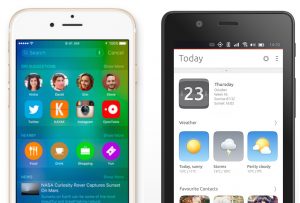
Timestamp: 29:00
I still use alternatives.
I’m using Ubuntu on a tablet more now; Unity 8 on a tablet. I really want to get it on my desktop. I was told it wasn’t going to be ready for 16.04, and for good reason.
I didn’t really want to press the team given that 16.04 is going to be used by so many people, in so many desktop environments.
‘I’m all about Unity 8. I want Unity 8 on my laptop.’
I thought it was right that we gave the team flexibility, use their judgements as to how much effort they put into Unity 8 versus the infrastructure that everybody depends on.
I thought that was the right call.
Now I’m all about Unity 8. I want Unity 8 on my laptop. I expect I’ll get it during 16.10. I think a bunch of people will be using it for 16.10.
How fast it gets cleaned up and spreads beyond there is kind of up to us, the community. How much we swarm around that problem and make it work for each of us individually is a function of how quickly it’ll become useful for the community at large.
Will we see Ubuntu Branded hardware on the Ubuntu Store?
‘The great thing about Ubuntu is that it enables others to go pursue their interests’
Timestamp: 31:50
I think the great thing about Ubuntu is that it enables others to go pursue their interests. We’re more effective as that enabler than trying to crowd them out.
I love that we have people who use Ubuntu to deliver great devices. From laptops, System76, through, with Ubuntu Core, a huge range of devices.
It doesn’t help to split Canonical’s attention down to the level of individual devices.
What happened to Ubuntu TV?
Timestamp: 38:50
What happened is we did enough work to be comfortable that the baseline of the experience was there, but we couldn’t find a TV manufacturer who wanted to put a powerful enough chip into the TV.
‘What happened to Ubuntu TV? We couldn’t find a TV manufacturer willing to put in a fast enough chip’
At the time, the smart TVs that were being made, they were putting the weakest possible chip into the TV. We had to take a tactical decision and we realised that there just aren’t that many TVs being made in the world. Of the various personal computing form-factors it would be the one with lowest path to widespread adoption.
I remain convinced that for a full convergence experience it’s necessary. We want to have full convergence across everything, including the TV experience. I’d love to have, if you’re interested in that, Unity 8 having a community that’s driving it towards a great experience with a point/remote.
Will There Be An Ubuntu Watch?
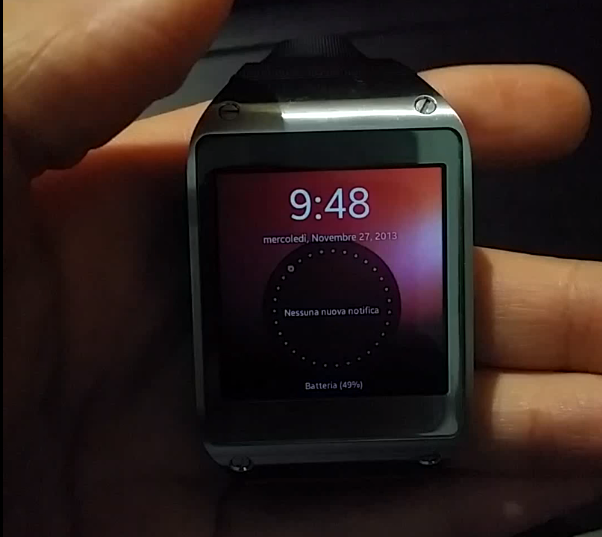
‘There are watches from big brand that are actually running Ubuntu Core under the hood’
Timestamp: 40:30
No. I don’t think so.
The watch is fundamentally a companion device. It’s likely to be best done as a dedicated device experience. Which i think is consistent with what we’ve seen elsewhere. So my gut feel is no.
You may well see watches running Ubuntu, but they’ll be using Ubuntu core and using Mir as a graphics layer within a dedicated UI. Ubuntu Core is small enough to run on a watch.
There have been watches from fairly big brands that were actually running Ubuntu Core under the hood. When will one of those go into production? It wouldn’t be for me to say — but it wouldn’t be Unity 8 [and] it wouldn’t be part of the convergence experience.
It’s too specialised a piece to fit into that big picture.
What is your ‘We’ve Won’ moment for the Ubuntu Project?
Timestamp: 43:00
‘When we say ‘we’ve won’ it’s like concentrating too much on who might have lost. And that’s not interesting.’
(tweet this)
A very long time ago smart people started saying ‘thank you’ for how Ubuntu was making a difference for them. People like teachers, entrepreneurs, people running pretty big businesses.
I don’t know if that’s a “we’ve won” moment, but it’s definitely a “I’m glad we’re doing it” moment.
The danger of a ‘we’ve won moment’ is that it doesn’t really reflect what’s actually going on. What’s actually going on is the whole world is moving to an increasingly open way of working …at everything. We happen to be playing a good role as the deliverer of a lot of that goodness. When we say ‘we’ve won’ it sort of …it’s a little bit like concentrating too much on who might have lost. And that’s not interesting.
And it’s perhaps taking a little too much credit for everything that’s happened. We shouldn’t be shy about what we do — we take care about an incredible amount of stuff that is important, that gets rid of friction for other people, and we also lead on a bunch of key things — but we’re part of a much bigger movement.
Is it possible that Ubuntu in the future won’t need Debian?
Timestamp: 45:15
No. I see Ubuntu and Debian as two halves of the same coin.
I still think a lot about Debian as a project; it does somethings in a uniquely good way [but] because of the way that debian does certain things. […]it will fall short in other areas. That’s not a criticism of Debian; it’s simply saying that you make choices, that you say ‘we can be really great at this, or really great at that’.
I see us as the other half of the tree. It’d be silly of the branches to say they don’t need roots.
Snappy is a really useful new primitive but our collaboration primitive is still largely debs — and still will be for a long time.
Are there any plans to remove the Android part(s) of Ubuntu Touch?
Yes.
It’s a slight awkwardness for us that there is… That it’s not a clean stack, effectively.
Using parts of the android kernel and driver stack is an efficient way for us to get up and running. I think it’s really important for us to show that we can deliver a better end-user experience, better security, and a better experience for the device manufacturer if it’s a clean stack, all open-source, all snaps…
The awkwardness isn’t because it’s Android; it’s not a tribal thing. It’s just because we have to integrate with something that is, itself, immovable. That’s a little tricky — or worse it could move without us being aware that it might move!
So hopefully that happens. It’s certainly not a piece that we love. I’m kind of grateful to Android that the piece is there at all, cos it gets up 99% of the way to where we need to be.
The Android guys have done a great job of building that ecosystem. We couldn’t do half the things we do today if it weren’t for that.

